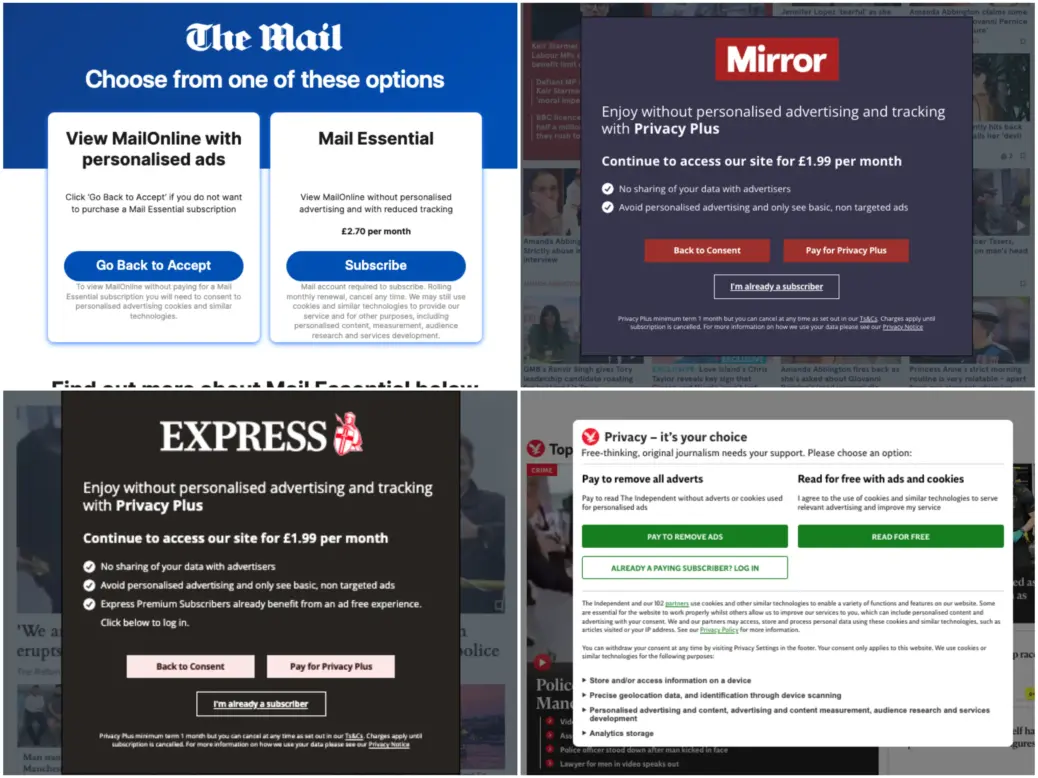
Update 6 August: The Sun has also introduced a “pay to reject” cookies option on its website.
The Sun’s option to reject personalised advertising costs £4.99 per month – making it the most expensive Press Gazette has seen so far in the UK.
In its FAQs about its Pay to Reject option, The Sun tells readers: “In response to recent enforcement action by the UK Information Commissioner against publishers, we have been forced to introduce new technology to ask our subscribers to consent to the advertising cookies that support our journalism, or pay a monthly fee that means we don’t need to use them.”
It adds: “If you consent, then your experience will be as you would normally expect. You can continue to control cookies as before. However, if you choose to opt out of advertising cookies, then we will ask you to pay a small monthly fee to address the shortfall in revenues we need to continue to produce the quality journalism you expect from us.”
Original story 25 July: Mail Online, The Independent and the websites of the Daily Mirror and Daily Express have begun requiring readers to pay for access if they do not consent to third-party cookies.
The development makes them the first major UK publishers to roll out the “consent or pay” approach to website monetisation that has already been adopted by many news businesses in Germany.
Pop-ups on mirror.co.uk and express.co.uk that began appearing this week ask readers if they want to “accept” their tracking and privacy policies or “reject all and pay”, which comes with a cost of £1.99 per month under a scheme dubbed “Privacy Plus”.
The Mail meanwhile is charging £2.70 a month for its “Mail Essential” cookie-less option and The Independent has priced its “Independent Ad-Free” offering at £4.
Readers who pay for the cookie-free experience on all four websites will still see ads, but are told there will be no sharing of their data with advertisers and they will avoid personalised advertising and only see basic, non-targeted ads.
The pop-ups on The Independent, Express and Mirror all freeze the page for the reader, while the Mail Online pop-up takes up half the screen but still allows the user to scroll the page and read stories.
The Mail’s pop-up tells readers Mail Essential is “the subscription that allows you to view Mail Online content without personalised advertising and with reduced tracking”.
The Independent, under a “Why are you asking me to pay?” FAQ, says: “The Independent relies on advertising to fund reporting, commentary and analysis of the highest quality from our teams across the globe. We are asking readers who do not want their cookies used for ad tracking and personalised advertising to support our journalism another way – paying for an advert-free experience instead.
“By subscribing to Independent Premium or Independent Ad-Free, you can help sustain the future of independent journalism and read our agenda-setting coverage uninterrupted by ads. In a changing and uncertain world, the need for trusted, free-thinking journalism has never felt more important and your support is gratefully received.”
Scroll down to see screenshots of all the publisher ‘consent or pay’ pop-ups
The pop-ups do not yet appear to have rolled out on other major Reach titles such as the Daily Star, Manchester Evening News and Liverpool Echo.
Why are publishers rolling out ‘consent or pay’ pop-ups?
Third-party cookies help marketers target more relevant adverts to consumers, which makes users who consent to them much more valuable than those who are effectively anonymous (although some publishers including Reach itself through its Mantis tool are getting around this issue by increasing their use of contextual advertising).
Rising consumer concerns around internet privacy, and the requirement that publishers easily allow readers to opt-out of cookies, have seen the number of people accepting them drop substantially. The Guardian estimated last year that one-third of readers were declining cookies, making it harder to sell the advertising that helps sustain many news publishers.
Consent or pay strategies seek to address this challenge by asking users to put a price on their privacy.
In March UK information watchdog the Information Commissioner’s Office called for views on the consent or pay model, saying that while “in principle data protection law does not prohibit” the approach, “any organisation considering such a model must be careful to ensure that consent to processing of personal information for personalised advertising has been freely given” – effectively meaning the price should not be so high that people feel they have no choice but to agree to give their data away.
In response to the publishers introducing the model, Stephen Bonner, the deputy commissioner of regulatory supervision at the Information Commissioner’s Office, said: “We expect all websites using advertising cookies or similar technologies to give people a fair choice over whether they consent to the use of such technologies, and our cookie compliance work includes ongoing engagement with some sections of the news media.
“We are aware several news outlets have now moved to a ‘consent or pay’ business model. We ran a call for views on these models in early 2024 and towards the end of the year will be publishing updates on the ICO’s position. In the meantime, we’ll continue to monitor the implementation of new approaches.”
The future of third-party cookies had been in significant doubt until this week because of Google’s long-mooted plan to phase the tool out on its dominant Chrome web browser. On Monday the company announced it had changed tack and would instead offer Google Chrome users more control over their data through “an informed choice that applies across their web browsing”. However this has raised concerns among some in the industry that most users may simply opt out of cookies anyway, in the process throttling publisher ad revenue.
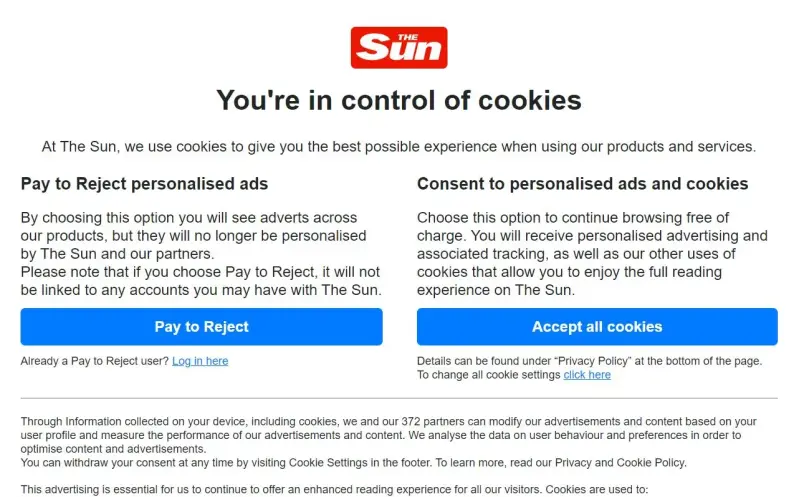
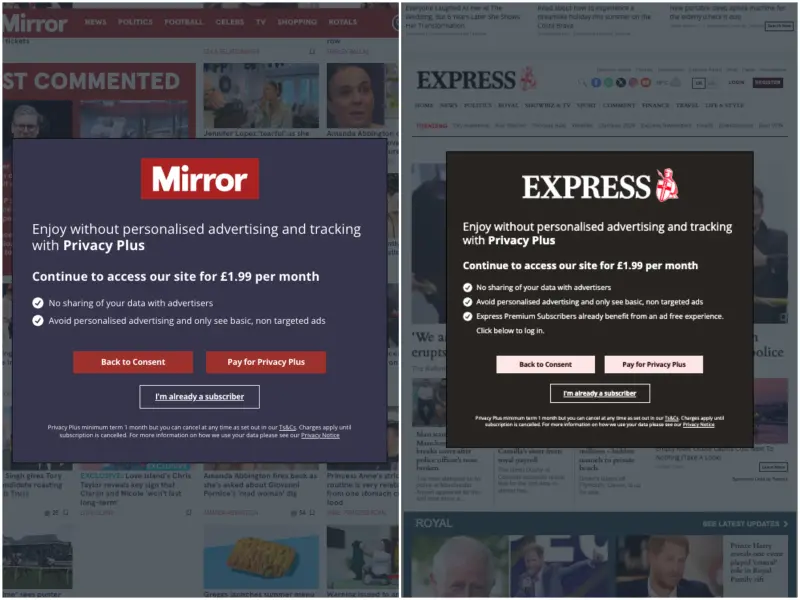
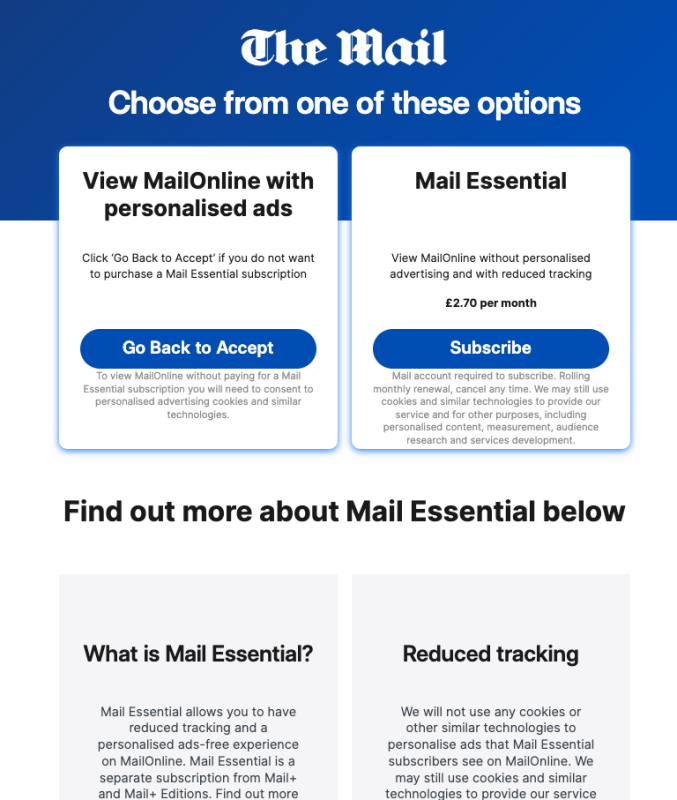
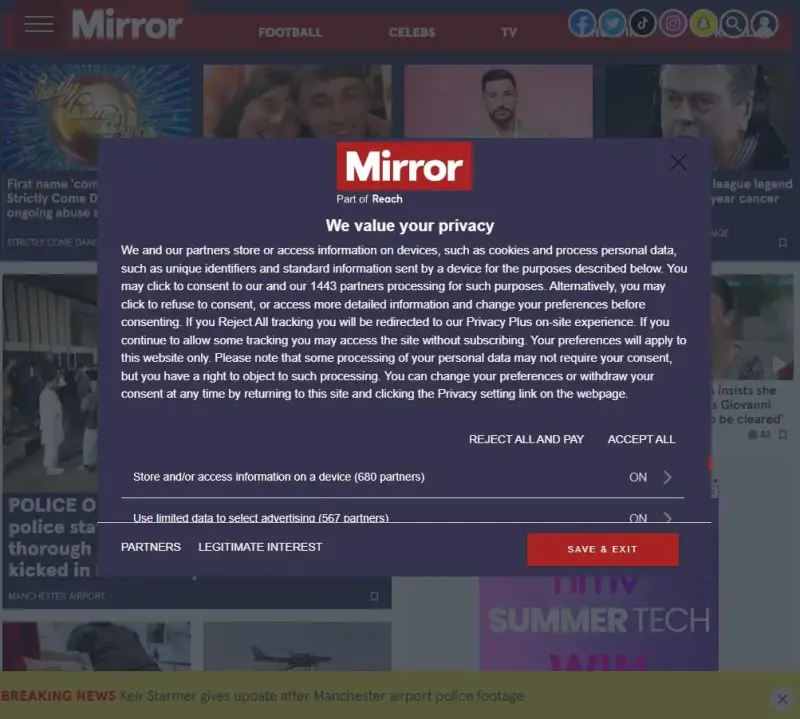
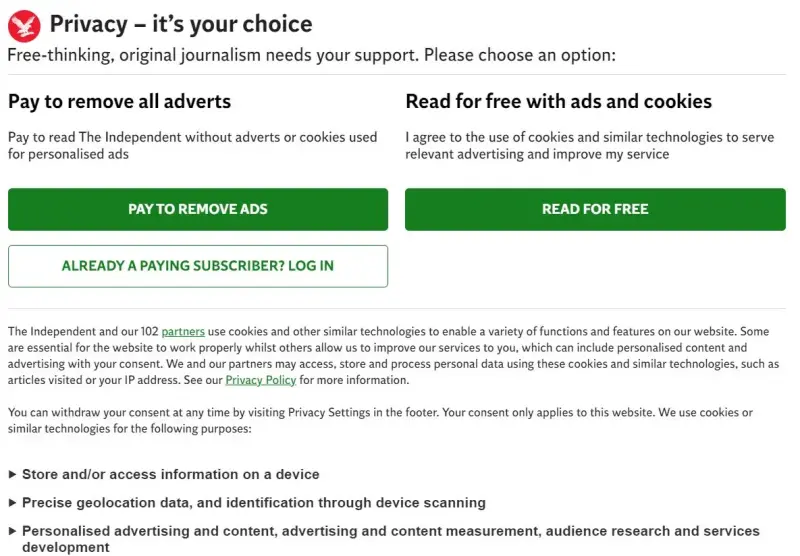
Email pged@pressgazette.co.uk to point out mistakes, provide story tips or send in a letter for publication on our "Letters Page" blog
